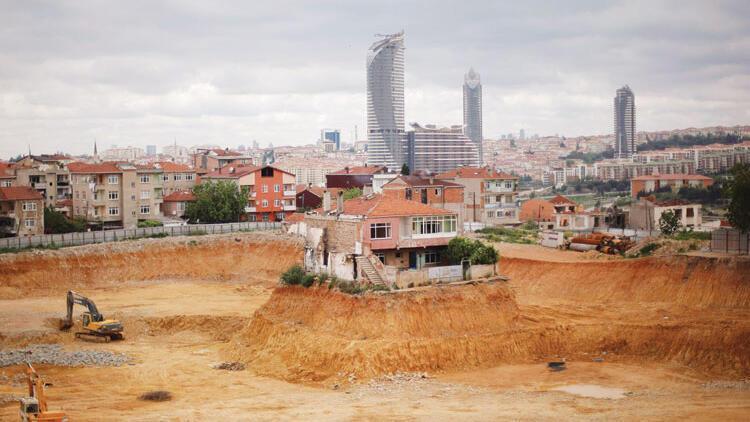Urban transformation expected to accelerate with new regulation
Gülistan Alagöz – ISTANBUL

A recent regulation, which allows the sale of shares of house owners not wanting to have their apartments renewed to be sold to third parties, is expected to accelerate urban transformation in Turkey.
An apartment building can be considered for urban transformation in Turkey if at least two thirds of property owners in the building approve the project, with the remaining one third of the property owners being compelled to sell them.
Until the new regulation was put into effect, the shares of the non-consenting property owners had to be bought by the consenting property owners or by the Treasury. But since the intervention of the Treasury only stayed on paper and was never actualized in any of the situations, most of the apartment buildings’ transformations was not undertaken.
But now, the new regulation has changed the system, allowing third parties – investors – to buy these shares, which is expected to accelerate urban transformation projects throughout the country.
The sale of these shares will be conducted through tenders, with the incomes being given to the relevant share owners. If the relevant building is however deemed “risky,” the Treasury will intervene, without no other potential investors being allowed in the process.
The tender will firstly be open to other flat owners of the relevant building who consented to the transformation project. If none of them step in to buy the shares, then a second tender will be held – this time for third party investors. The tender will be resumed until the shares find buyers.
Vedad Gürgen, the head of the directorate general of Infrastructure and Urban Transformation Services of the Environment and Urbanization Ministry, told daily Hürriyet that it is the first time that the government has ever allowed the inclusion of third parties in the purchase process of the shares.
“We prefer that regarding the structures set to be renewed within the context of urban transformation, the occupants [of the relevant apartment] complete the process among themselves. But that is not always possible,” Gürgen told daily Hürriyet.
“For example, two thirds [of property owners] agreed [on the urban transformation project], but one third of them do not approve it. At that point, 15 days are given to those who did not agree on the decision. If there is no positive return during that period, their shares are sold. And we want that [the already] property owners [of the relevant apartment] buy them. But this might happen due to financial reasons,” he said.
He said that the new regulation will “clear the way for” many urban transformation projects. “The thing that has been done [with the new regulation] is to find a financier for urban transformation,” he said.
The Environment and Urbanization Ministry will be involved in the system as a “supervisor,” as it will determine the market value of the shares to be sold and its Sales Commission will organize the sale process, said Gürgen.
The tenders to be held will be announced by the district municipalities and the ministry itself, he said.
Meanwhile, lawyer Hikmet Güngör, an expert in the real estate property area, assessed the new regulation to daily Hürriyet. “With this new step, the Environment and Urbanization Ministry will accelerate the transformation process. Although in the past, the Treasury would buy [the shares], there has never been an example of this situation. This is why hundreds of projects are on standby,” he said.
“Now, investors who want to invest in projects they trust will go and buy shares. This way, both investors and citizens staying at that risky apartment building will win. This regulation is also important for regions where low- or middle-income citizens live. In such regions, citizens were helpless since they did not have budget to buy shares,” he also said.
















